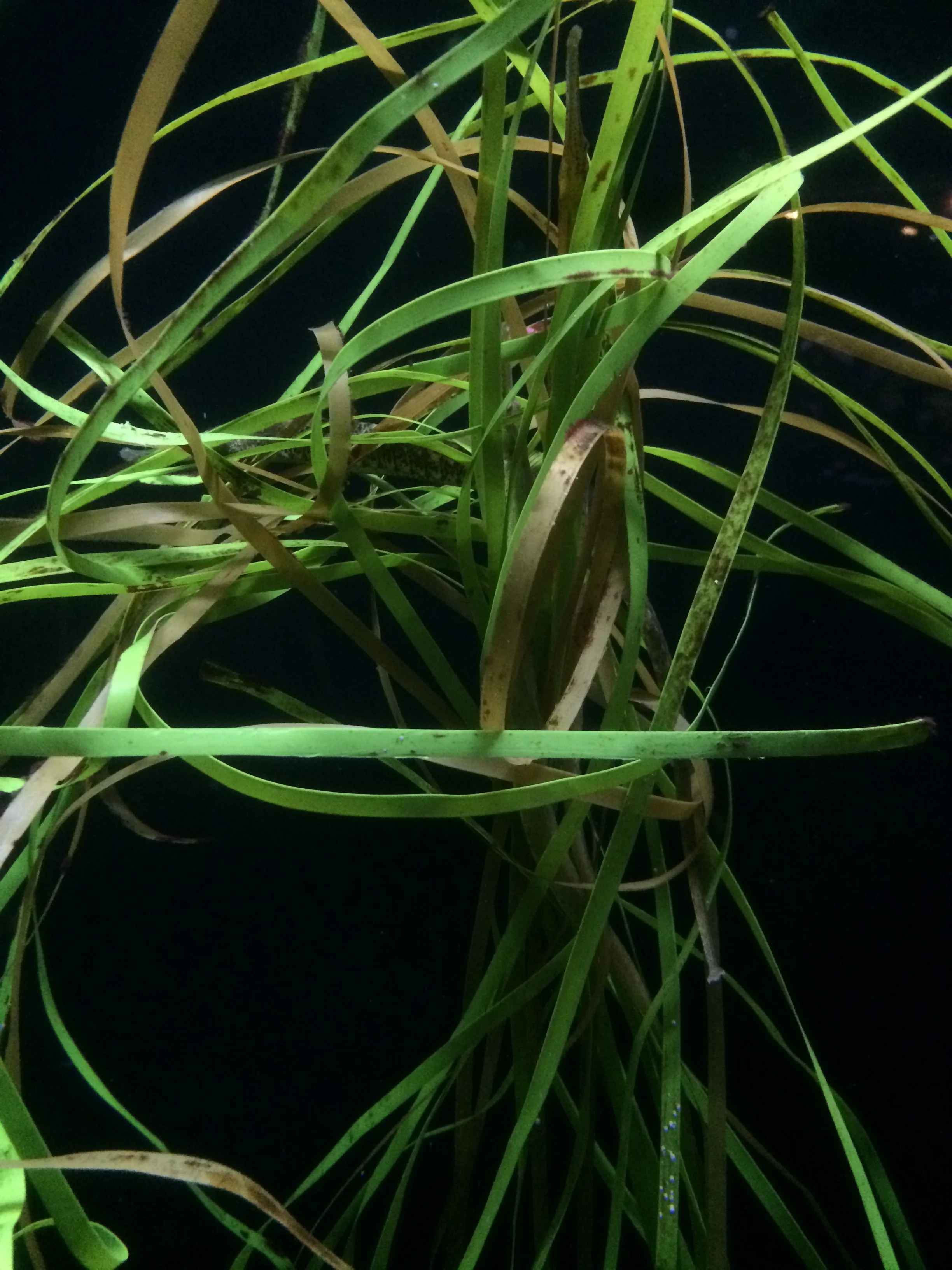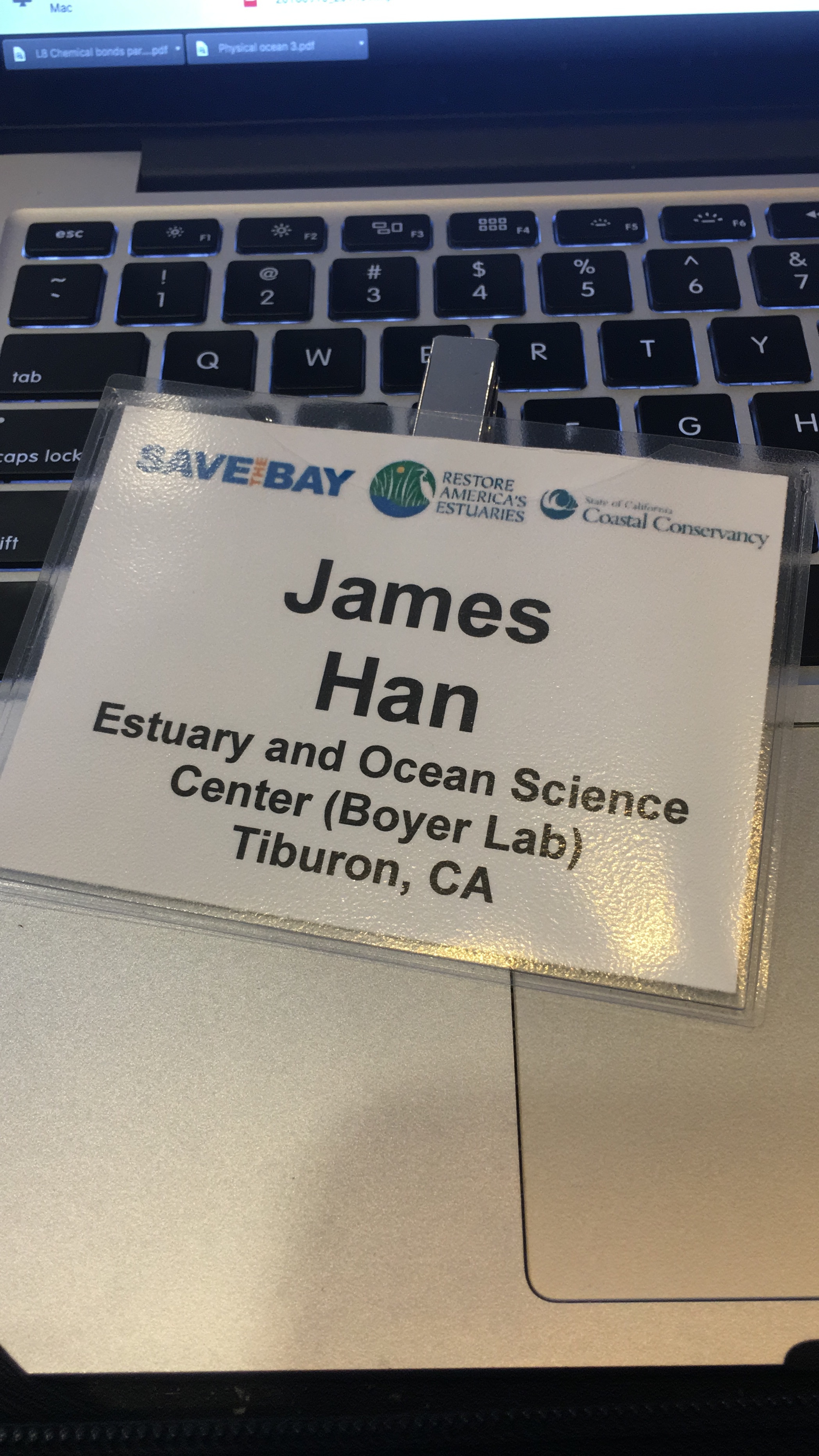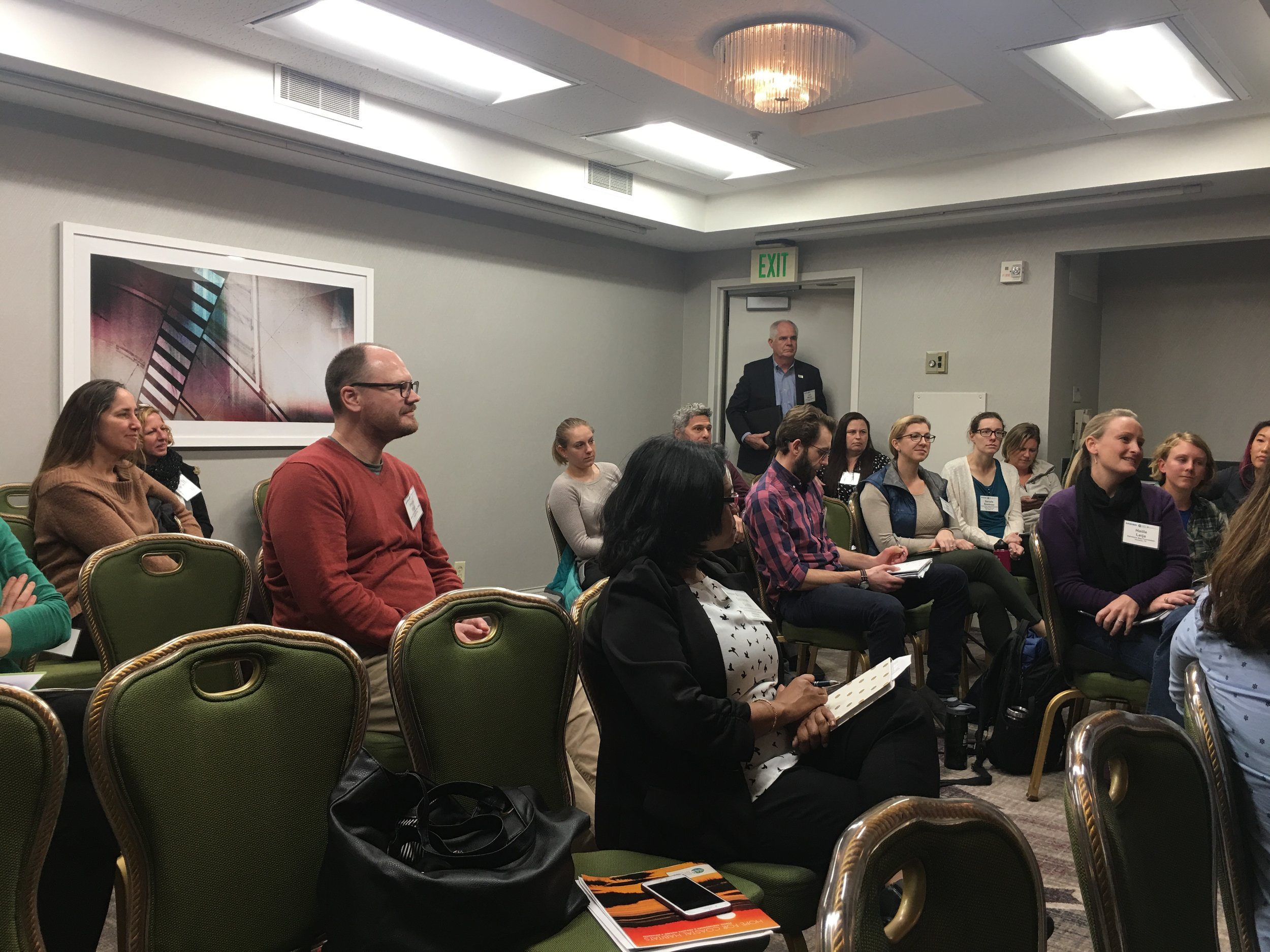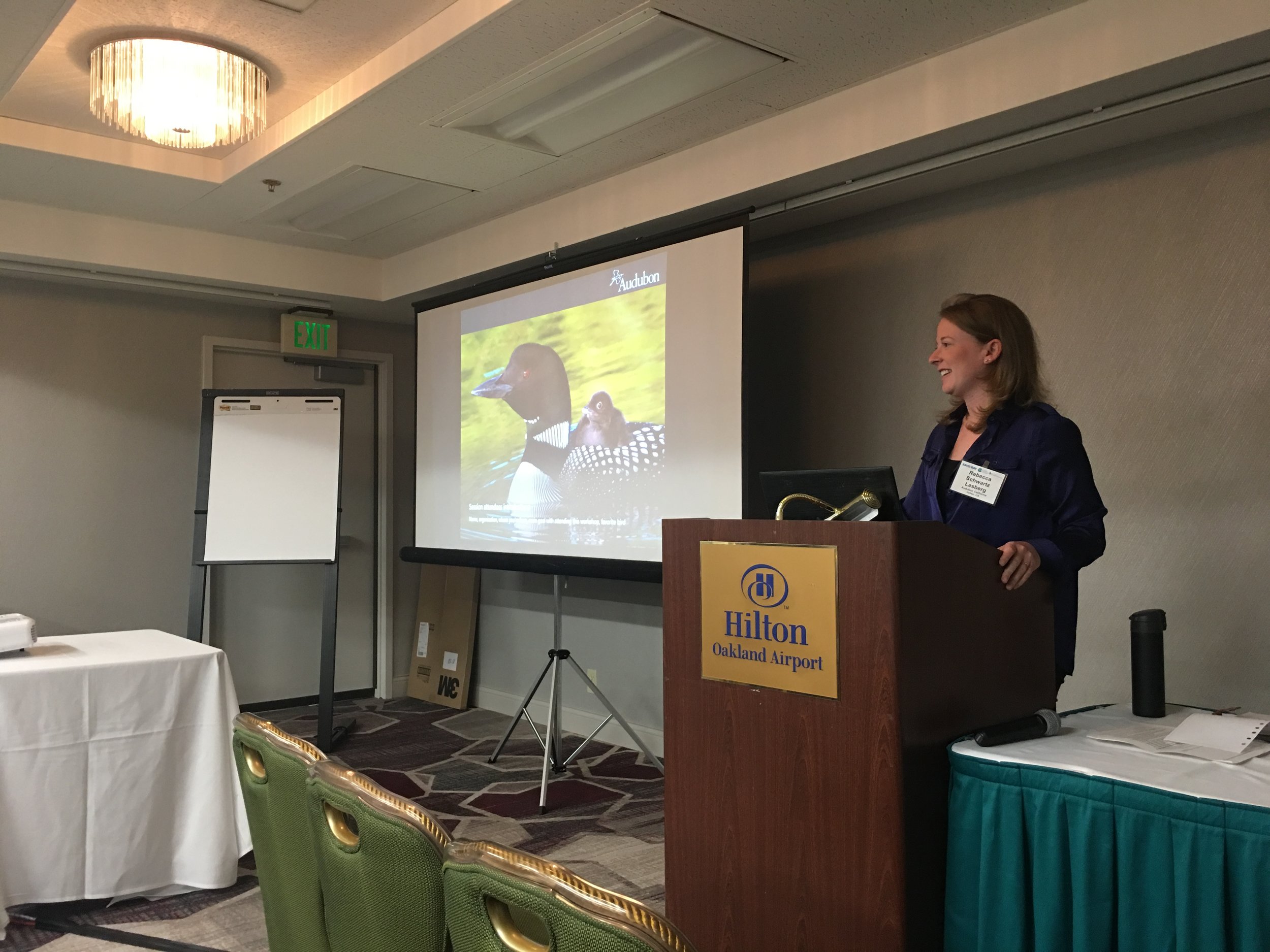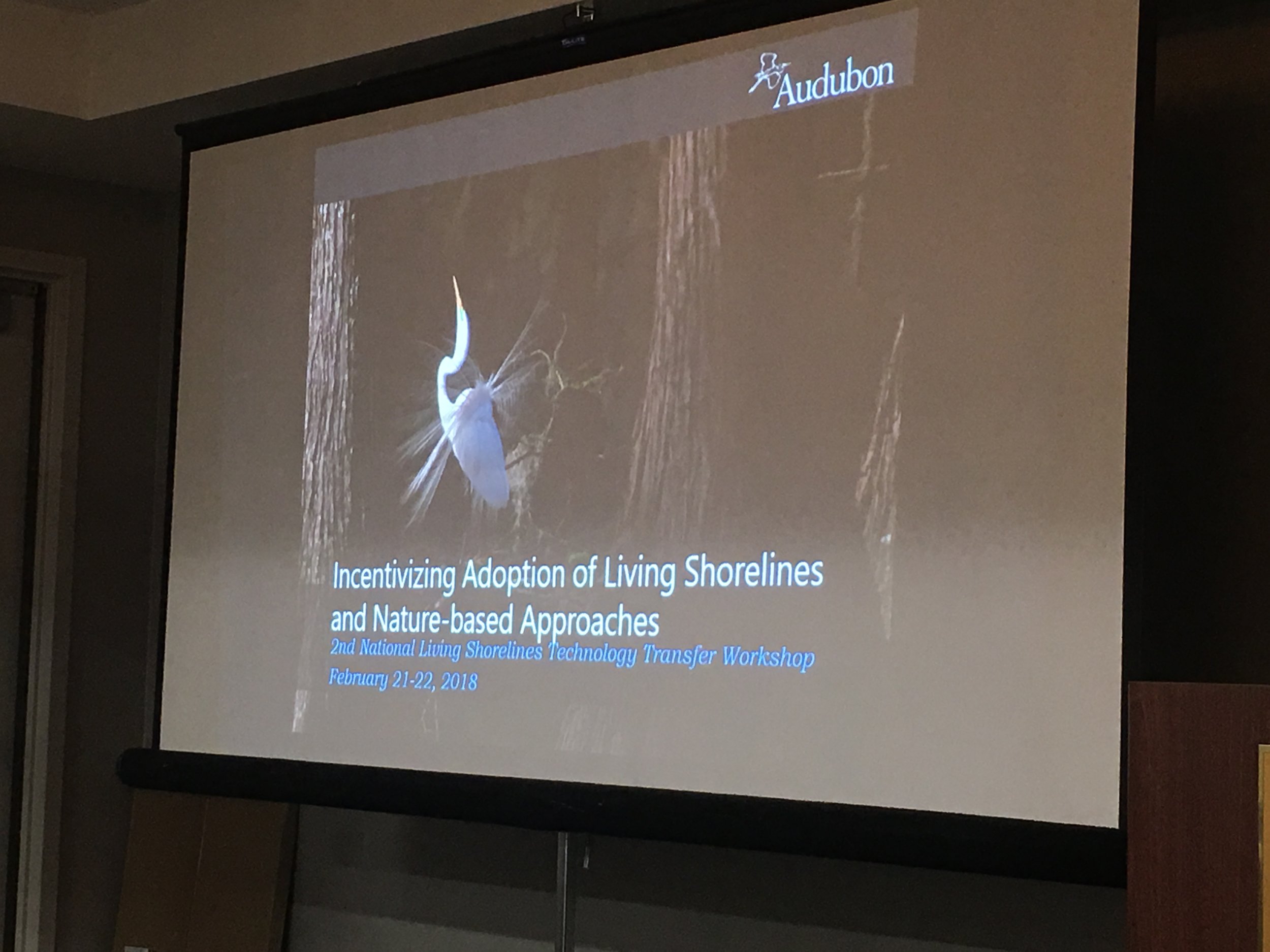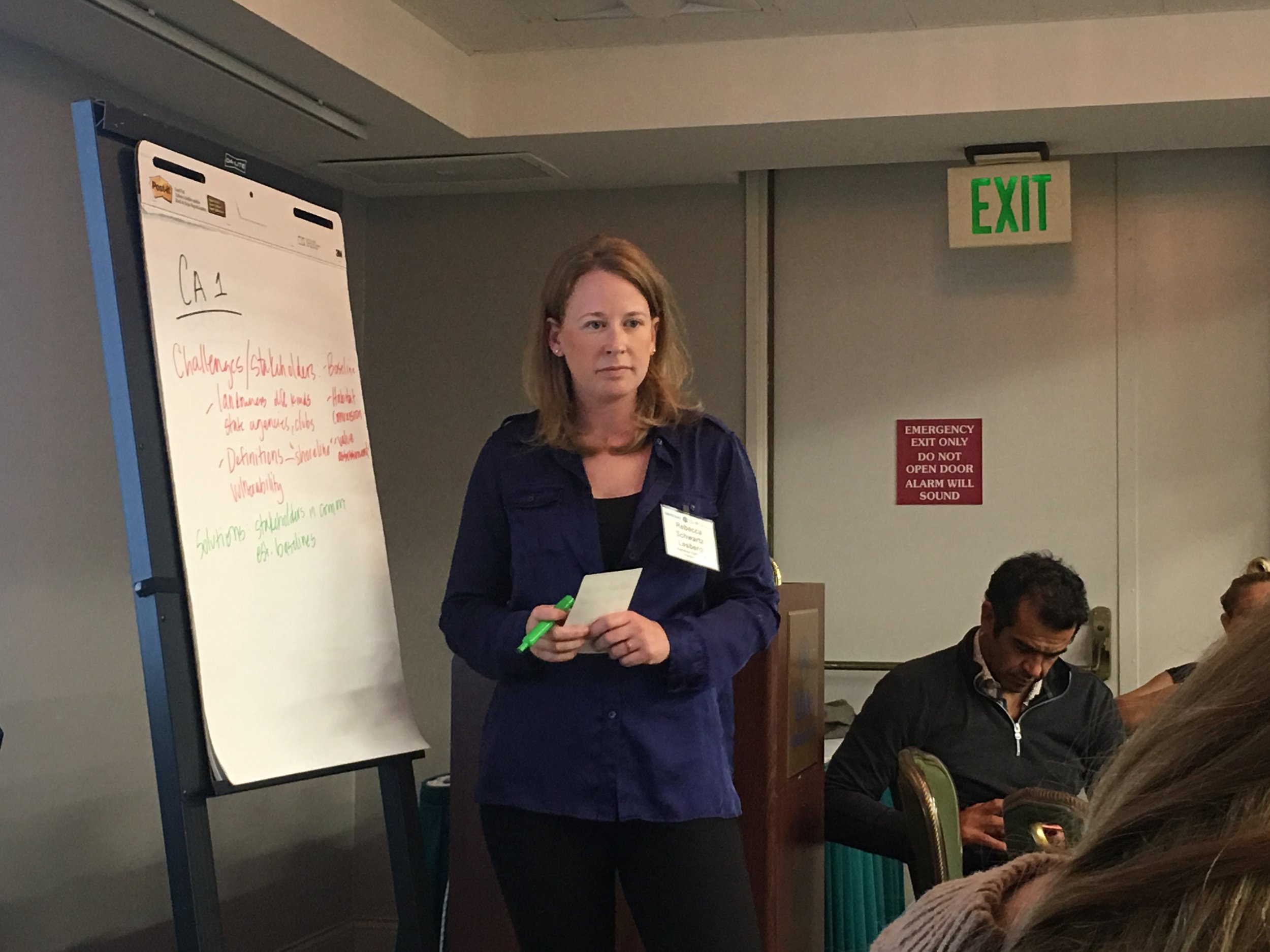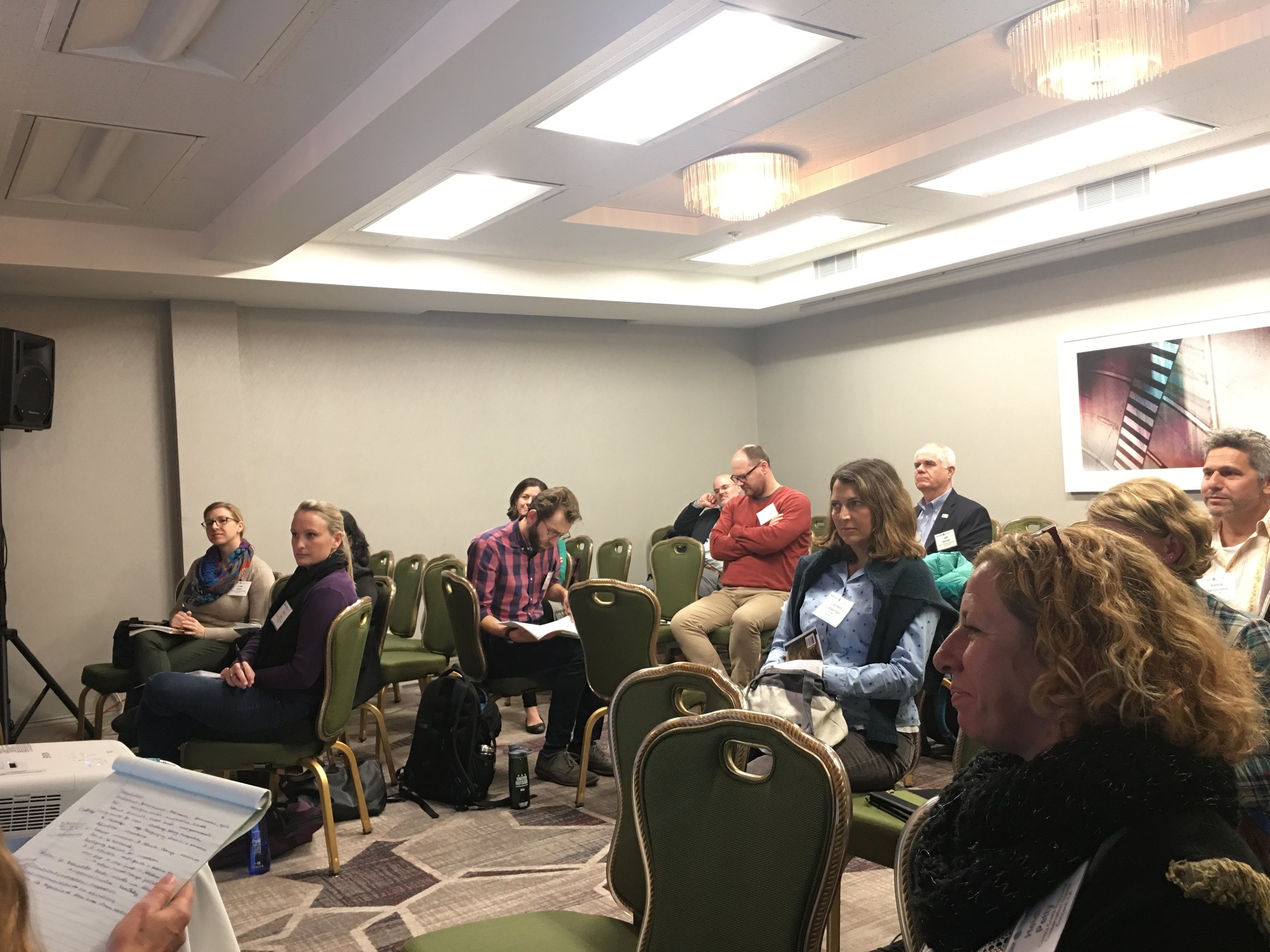Incentivizing Adoption of Living Shorelines and Nature-Based Approaches
/I had a great time serving as a volunteer note-taker Thursday afternoon for the 2nd Annual Living Shorelines Tech Transfer Workshop. I was only able to attend for the afternoon session, but I felt like I learned a lot and it was great to hear about the work being done across the country on wetland restoration and shoreline restoration in general.
I did leave feeling concerned that the conference was not racially diverse at all. (It was great to see a majority of women in the session I attended though, and there was quite a strong showing from LGB people overall.) I didn't feel out of place or excluded, but I definitely have reservations about the fact that the overwhelming majority of attendees, who represent a broad spectrum of experts, regulatory agencies, non-profits, researchers, consultants, and more do not reflect the broader community or communities where restoration work needs to be done. One of the things we discussed at our workshop was the need to have "trusted ambassadors" who can work with communities to get their buy-in on living shorelines projects. I wonder how much easier obtaining such trust would be if government bodies, NGOs, and research centers had more people in their employ who came from those communities and understood their concerns firsthand. Efforts to create shoreline resilience will not be successful in the long-term unless the entire community feels included in the process at all its many levels.
Overall I had a great time at the conference and my only regret is that I couldn't attend the whole two-day conference due to scheduling conflicts. Great snacks too! :)
For a copy of the detailed notes I took and submitted to the event organizers, including a more in-depth analysis of what was discussed at the session, please click here.
